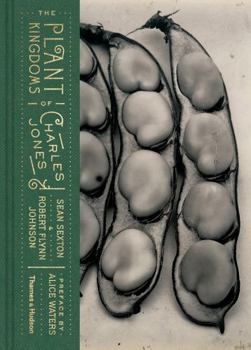The Plant Kingdoms of Charles Jones
First published in 1998, The Plant Kingdoms of Charles Jones is an exquisite visual feast for anyone who draws delight from the bountiful riches of nature. It presents more than 100 photographs of vegetables, fruits and flowers, all taken by the same photographer at around the turn of the 20th century, and all set against neutral, dark or light backgrounds in the style of formal studio 'portraits'. Their creator, Charles Jones, is likely to remain forever a mysterious figure. In 1981 photography collector Sean Sexton discovered his surviving prints by chance in Bermondsey Market in London, and their publication rescued Jones and his genius from obscurity. We know that Jones was born in Wolverhampton, England, in 1866, the son of a master butcher. He trained as a gardener and was employed on a number of private estates, notably Ote Hall in Sussex, before retiring to Lincolnshire where he died in 1959 aged ninety-two. But Jones left no notes, diaries or writings to accompany his photographs, so we shall probably never know exactly how and why he came so obsessively and so brilliantly to photograph the plants he encountered in his everyday working life. Jones's techniques - close-up viewpoint, long exposure and spare composition - anticipate the achievements of better-known masters such as Karl Blossfeldt and Edward Weston. Revealing art in nature, the images have a wider significance in the history of photography and of the still-life in general, as explained in the book's introduction by Robert Flynn Johnson. For a contemporary audience, the photographs' simple and unembellished beauty is the perfect antidote to appetites jaded by processed foods and 21st-century artifice. They communicate and inspire a loving respect for the beauty in nature.
Format:Hardcover
Language:English
ISBN:0500544638
ISBN13:9780500544631
Release Date:October 2016
Publisher:Thames & Hudson
Length:128 Pages
Weight:1.10 lbs.
Dimensions:0.7" x 6.6" x 9.1"
Customer Reviews
0 rating





